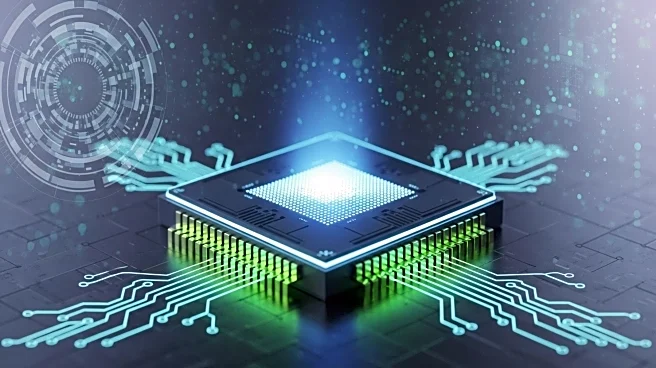What's Happening?
Nvidia has announced its acquisition of a $5 billion stake in Intel, joining the U.S. government as a major shareholder in the semiconductor company. This investment comes shortly after the U.S. government purchased a 10% stake in Intel, valued at $8.9 billion, as part of efforts to bolster domestic semiconductor manufacturing. Nvidia's purchase price is set at $23.28 per share, giving it approximately 4% ownership of Intel. The partnership aims to develop custom data center and personal computing products, enhancing Intel's position in the AI market.
Why It's Important?
The investment by Nvidia is a strategic move to strengthen Intel's capabilities in the AI sector, which has become increasingly competitive. The U.S. government's involvement highlights the importance of semiconductor manufacturing to national security and economic leadership. By supporting Intel, the U.S. aims to maintain its technological edge over global competitors, particularly China. The collaboration between Nvidia and Intel could lead to significant advancements in AI technology, benefiting industries reliant on data processing and computing power.
What's Next?
The partnership is expected to result in the development of new AI and data center products, potentially transforming the semiconductor industry. Regulatory approvals are pending for Nvidia's investment, which could influence the timeline of product development. The collaboration may prompt other tech companies to form similar alliances, further intensifying competition in the AI sector. Stakeholders, including investors and industry leaders, will be closely monitoring the progress and outcomes of this partnership.
Beyond the Headlines
This collaboration highlights the evolving dynamics in the tech industry, where traditional rivals are increasingly forming strategic alliances to address emerging challenges. The partnership may also raise questions about the ethical implications of AI development and the role of government in private sector investments. As AI technology continues to advance, issues related to data privacy, security, and workforce displacement may become more prominent.









